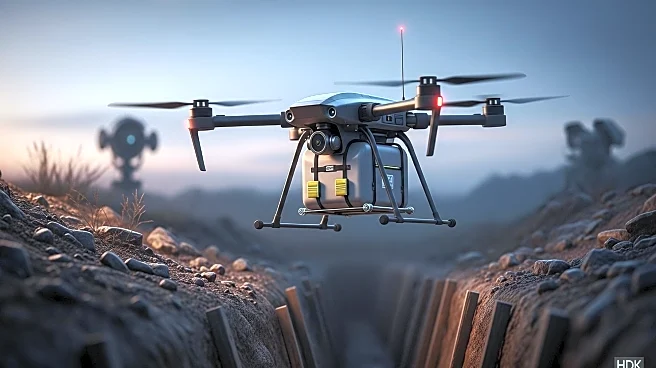What's Happening?
In Eastern Ukraine, Ukrainian forces are employing drones to deliver essential supplies to troops entrenched along the front lines. These drones, originally designed for agricultural purposes, have been adapted to drop food, water, ammunition, and other necessities to soldiers who are unable to be resupplied by conventional means due to constant Russian drone surveillance. The supply drops are crucial for maintaining the soldiers' positions, which are often under threat from Russian advances. The use of drones for resupply highlights the innovative strategies employed by Ukraine to sustain its military efforts in the face of ongoing conflict.
Why It's Important?
The use of drones for resupply is a significant development in modern warfare, showcasing the adaptability and resourcefulness of the Ukrainian military. This strategy not only helps sustain the troops but also preserves Ukraine's human resources, which are vital in the ongoing conflict with Russia. The ability to maintain positions without retreating is crucial for Ukraine's defense strategy, as it faces relentless pressure from Russian forces. The broader implications include the potential for drones to be used in similar capacities in other conflicts, altering traditional supply chain methods in warfare.
What's Next?
The continued use of drones for resupply may lead to further innovations in military logistics, potentially influencing other nations' strategies in similar conflicts. As Ukraine adapts to the challenges posed by Russian surveillance, it may explore additional technological solutions to enhance its defensive capabilities. The ongoing conflict will likely see increased reliance on technology to overcome logistical hurdles, with potential implications for future military engagements worldwide.
Beyond the Headlines
The ethical and legal dimensions of using drones in warfare are complex, as they can both aid in humanitarian efforts and pose risks of revealing positions to enemy forces. The long-term impact of drone usage in military operations may lead to shifts in international law and military ethics, as nations grapple with the balance between technological advancement and human rights.









